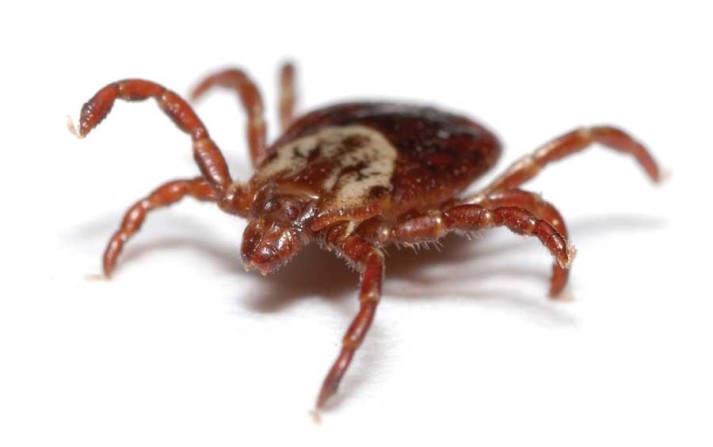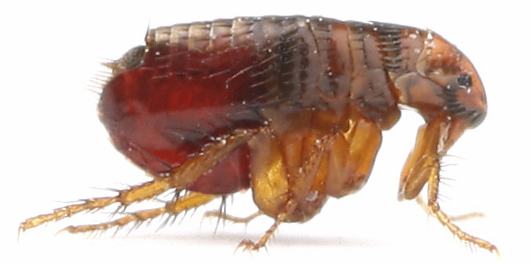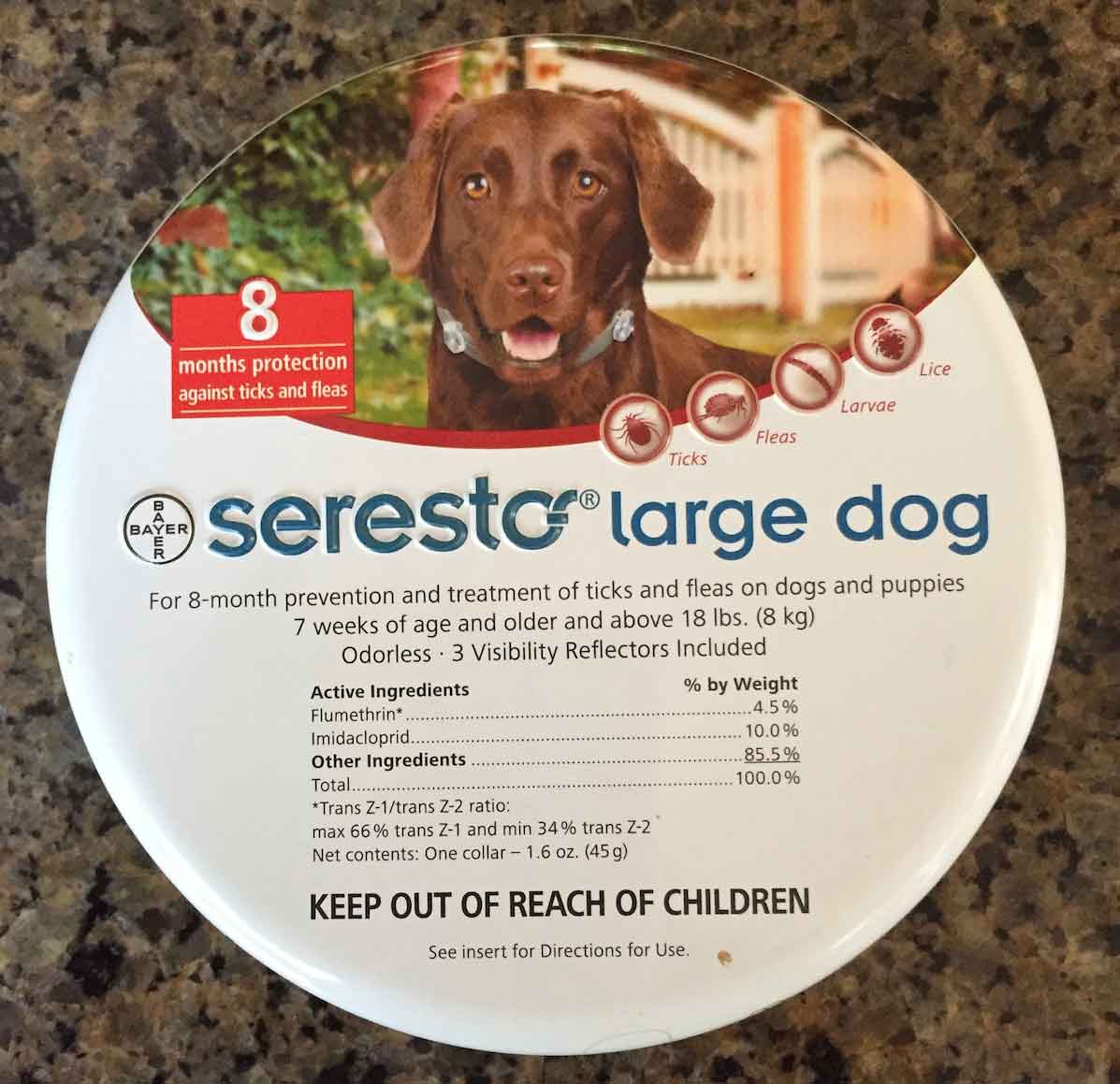Five Questions for Dr. Moore: Fleas and Ticks
How To Prepare for Flea and Tick Season
It’s summer, which means the season for fleas and ticks is underway in most parts of the the country: “Both fleas and ticks flourish in warm climates. The ideal temperature for these parasites is within the 70 to 85 degree range, but they can live in cooler and warmer temperatures as well. For many states, the most prevalent seasons for fleas and ticks are the spring and summer, or roughly from May through September. For southern and southwestern states, the flea and tick season typically occurs year round.”
Dog owners everywhere should protect their pets against fleas, ticks, and other insect parasites. It’s important to note that even urban dogs are not immune. City dogs are exposed to these bugs and the diseases they bring with them just like out-of-town dogs.
In fact, urban dogs, by visiting dog parks, doggie day care, and other places where lots of dogs congregate, are often more at risk than their country counterparts for picking up parasites. And with the continuing trend of bringing southern shelter dogs up north, more and more urban dogs can be exposed to heart worm, which is a disease more common below the Mason Dixon line.
We’re checking in with Dr. Christina Moore to ask her five questions about fleas, ticks, mosquitoes, and other parasitic bugs.

Urban Dog: What dangers does your dog face from fleas and ticks? What dangers do humans face?
Dr. Moore: Basically most of the diseases that can be transmitted to dogs by parasitic bugs can be transmitted to humans as well. Lyme Disease is number one. It’s really common in the northeast and becoming more so. We want to make sure we’re watching out for it, testing for it, and treating it. Rocky Mountain Spotted Fever and anaplasmosis are things we see on occasion. There’s a test called AccuPlex that vets can use that tests for lots of different vector borne diseases. I recommend that your dogs be tested with this to find out if they’ve been exposed to any of the diseases in question.
Note from Urban Dog: according to the American Veterinary Medical Association (AVMA): “‘Vector-borne disease’ is the term commonly used to describe an illness caused by an infectious microbe that is transmitted to people by blood-sucking arthropods. The arthropods (insects or arachnids) that most commonly serve as vectors include: 1.) blood sucking insects such as mosquitoes, fleas, lice, biting flies and bugs, and 2.) blood sucking arachnids such as mites and ticks. The term “vector” refers to any arthropod that transmits a disease through feeding activity.
Urban Dog: What is the problem with the “treat it when you see it” approach?
Dr. Moore: With fleas the problem is that they spend up to ninety percent of their lifecycle NOT on your dog. If you are seeing a flea on your dog, that means there are nine more fleas somewhere in your environment, whether it’s your carpet or your couch or your bed… wherever your dog lays. By the time you see fleas on your dog, it’s likely you’ve already got a major infestation in your house, which can be very difficult to deal with. Preventing fleas is a lot easier to deal with than with trying to get rid of them after the fact. With ticks, if you see a tick attached to your dog that means the tick has already had a blood meal and may have already transmitted a disease to your pet.
Urban Dog: What should you consider when choosing flea and preventive products? What in your opinion are the best products out there for fleas and ticks?

Dr. Moore: Choosing a product really depends on the lifestyle of your dog. If you have a dog that’s going out to the Hamptons or upstate all summer long and is running around in lots of tall grass, you want to make sure you are using something that’s repelling those ticks, not something that’s simply killing them. That way you are avoiding the problem we talked about where ticks transmit diseases once they have had a blood meal. I recommend a topical treatment called Vectra 3D. It actually has the ability to repel the ticks, it keeps them from latching on in the first place. My dog Frankie isn’t out in tall grasses at all, I’ve never even seen a tick attached to him, so in his case, I don’t use the topicals, for me it seems to be better to use an oral preventative.
There are lots of oral preventatives that can counter fleas, ticks, and other parasites, so check with your vet to find out which one they recommend. And now there are excellent collars that fend off fleas an ticks and they don’t use all the awful powders and chemicals the old collars used to use. Again check with your vet to see what they recommend concerning collars. These collars are getting great feedback. A final note is to check with your vet; don’t shop for these treatments online. If you get them from your vet you know what you are getting; if you get them online you run the risk getting the wrong type of medicine or dosage. And I know this is Urban Dog, but all of this applies to your cats as well.
Urban Dog Aside: We recently fitted Bodhi with a Seresto Flea and Tick Collar and it seems to be working.

Bodhi has been out in the country and woods in Northern Florida for the last few weeks and we’ve seen no evidence of any fleas on him yet. He did test positive for a tick-borne disease, which he definitely had to have caught in Florida, we do not know if the tick bit him before or after we started using the Seresto collar. (And yes, Mr. B was treated for the disease!)

Urban Dog: As a kid, I was told you had to be very careful to remove ticks and not leave their heads in the body. Is this true? Is there a “best method” for removing ticks?
Dr. Moore: It is true! You do want to get the head out! I don’t know if there’s a best method other than those tick pullers that we use in the practices. You can get them at pet stores. I think they work better than tweezers, but if you do leave the head in, you can see it and still get it out with tweezers.
Urban Dog: We’ve been talking about fleas and ticks so far, but aren’t mosquitoes a problem too? Isn’t that how heartworm is transmitted? What about ear mites? Are there other parasites and bug-borne diseases we should be aware of?
Dr. Moore: Mosquitoes are the way heart worm is transmitted, and it’s important to note that mosquitoes can be present year-round. So I recommend that your dog be on heartworm medicine all year. I know that people who live in the city often think it’s cold outside and there are no mosquitoes out there, but that’s not true. They can get into your apartment, especially when it’s cold outside because they are drawn to the warmth of your house. Also there’s a big movement to bring rescue dogs up north from the south and a lot of these dogs are coming up with heart worm, so we’re seeing an uptick in heart worm that way. This is definitely something you want to prevent. Treating heart worm disease is so much worse than preventing it. Ear mites are usually found in cats and dogs who’ve been in places like shelters and kennels. They can be treated with topicals. Also, many types of tapeworm are transmitted by dogs and cats eating fleas, so once again, it is important to prevent fleas from ever getting on your pet.
Different products to protect your dog against fleas, ticks, and other parasites are regulated by various agencies. Check the labels on whatever you buy to see what the relevant agency is. To report problems with EPA-approved pesticides, contact the National Pesticide Information Center (NPIC) at 1-800-858-7378. To report problems with FDA-approved drugs go to How to Report An Adverse Drug Experience or call 1-888-FDA-VETS. Additional reporting information is available on the FDA’s Report a Problem page.






